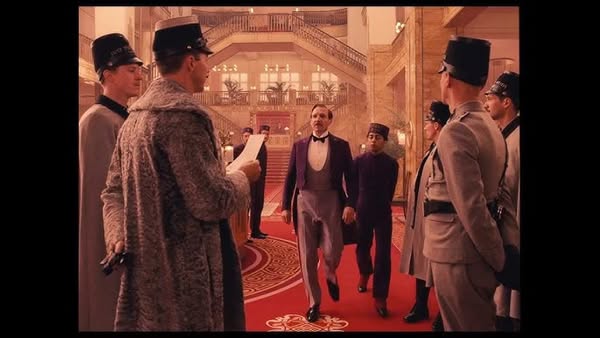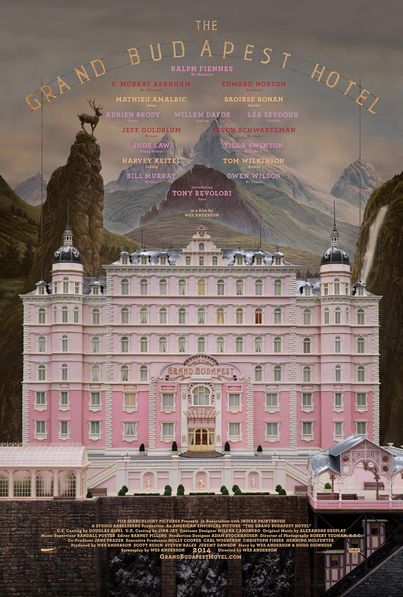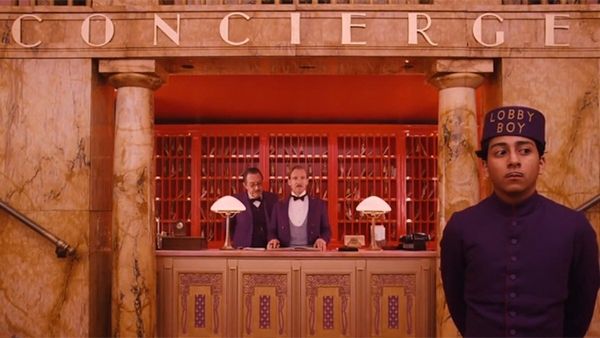The Grand Budapest Hotel (2014)

The Grand Budapest Hotel is a 2014 comedy-drama film directed by Wes Anderson, known for its distinct visual style, whimsical storytelling, and rich character development. Set in the fictional European country of Zubrowka, the film follows the adventures of Gustave H. (Ralph Fiennes), the eccentric concierge of the Grand Budapest Hotel, and his protégé, Zero Moustafa (Tony Revolori).
The story is framed as a recounting by an older Zero, who reflects on his experiences at the hotel during its heyday in the 1930s. When one of the hotel’s wealthy patrons, Madame D. (Tilda Swinton), dies under mysterious circumstances, Gustave becomes embroiled in a battle over her vast fortune, which includes a valuable painting. Accused of her murder, he must clear his name while navigating a web of intrigue involving a corrupt family member, Dmitri (Adrien Brody), and the authorities.

Wes Anderson’s signature visual style shines through in the film’s meticulous production design, vibrant color palette, and symmetrical compositions. The film is filled with elaborate sets, intricate costumes, and a beautifully crafted world that immerses viewers in its charm. The use of miniatures and practical effects adds a unique touch, enhancing the whimsical nature of the narrative.
The ensemble cast features notable performances from Ralph Fiennes, who brings charm and wit to the role of Gustave, and Tony Revolori as the earnest and loyal Zero. Other notable actors include F. Murray Abraham, Saoirse Ronan, Willem Dafoe, and Jeff Goldblum, each contributing to the film’s rich tapestry of characters.

The Grand Budapest Hotel explores themes of friendship, loyalty, and the passage of time, all set against the backdrop of a changing Europe. The film’s narrative intricacies and humor reflect Anderson’s distinctive storytelling style, blending absurdity with poignancy.
Upon its release, the film received critical acclaim, earning nine Academy Award nominations and winning four, including Best Production Design and Best Original Score. It has since become one of Anderson’s most beloved works, celebrated for its artistry and narrative depth.

In conclusion, The Grand Budapest Hotel is a visually stunning and intricately crafted film that showcases Wes Anderson’s unique style and storytelling prowess. With its engaging characters, rich themes, and delightful humor, it offers a captivating cinematic experience that resonates with audiences around the world.











